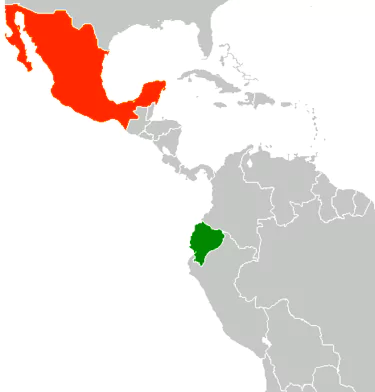![]() 15 Apr 2024
15 Apr 2024
Ecuador, in a serious violation of the Vienna Convention on diplomatic relations
raided at Mexico’s embassy in Quito.

More on News:
| Must Read | |
| NCERT Notes For UPSC | UPSC Daily Current Affairs |
| UPSC Blogs | UPSC Daily Editorials |
| Daily Current Affairs Quiz | Daily Main Answer Writing |
| UPSC Mains Previous Year Papers | UPSC Test Series 2024 |
<div class="new-fform">
</div>